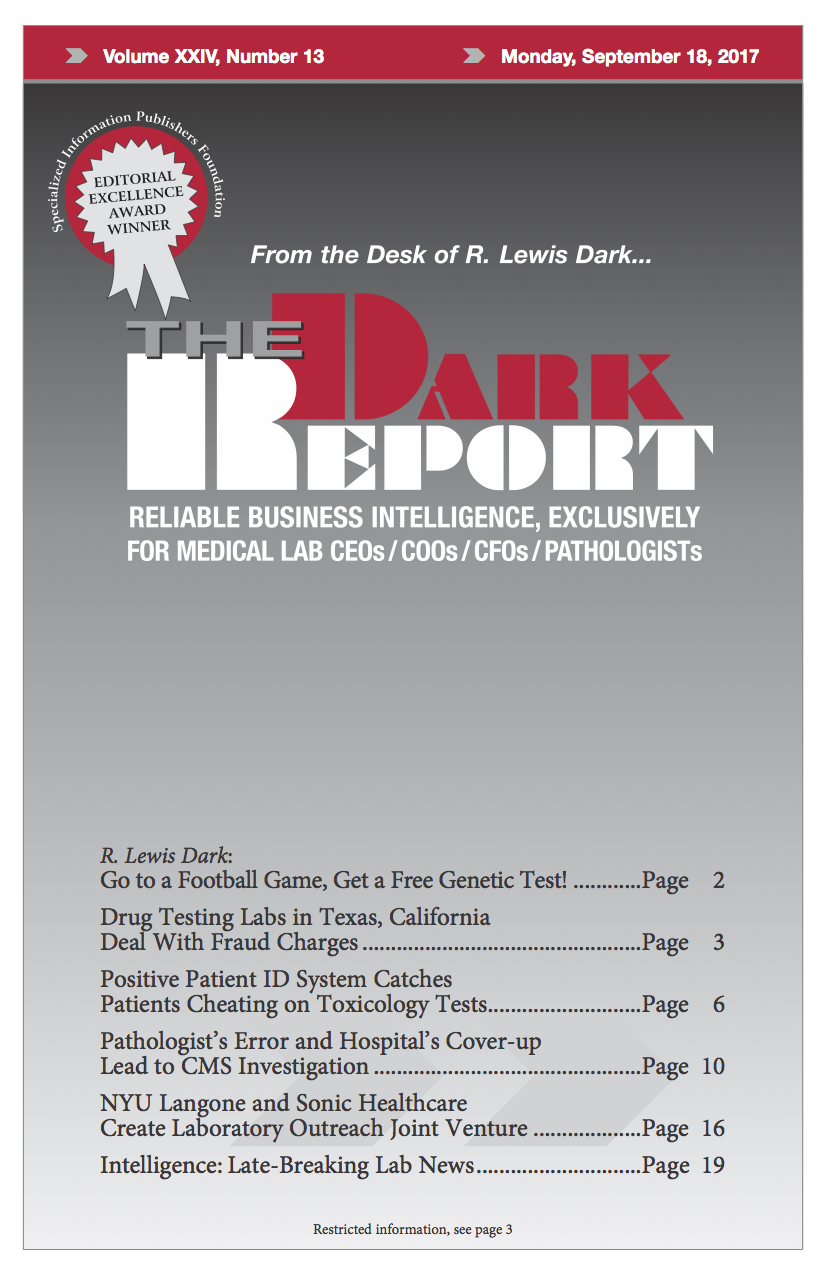This is an excerpt from a 1,400-word article in the Sept. 18, 2017 issue of THE DARK REPORT. The complete article is available for a limited time to all readers, and available at all times to paid members of the Dark Intelligence Group. CEO SUMMARY: Is this a sign that the rampant fraud and abuse […]
To access this post, you must purchase The Dark Report.


